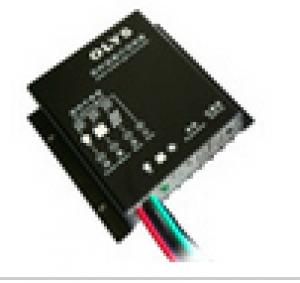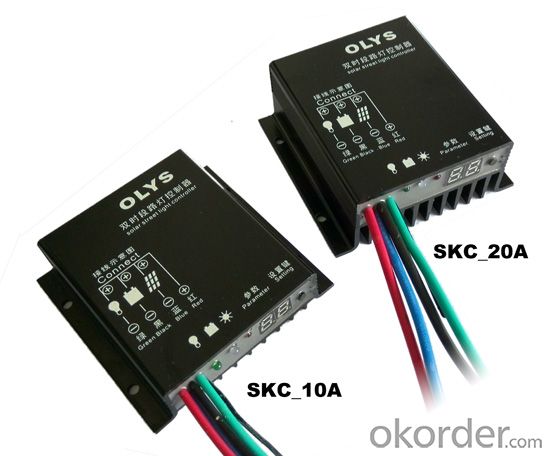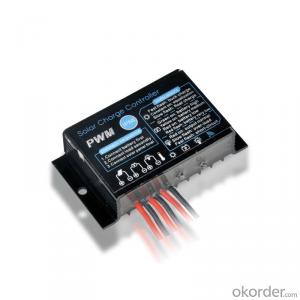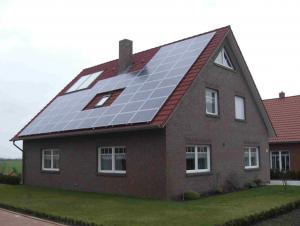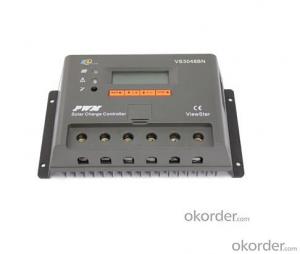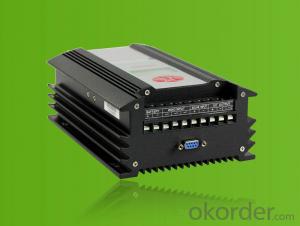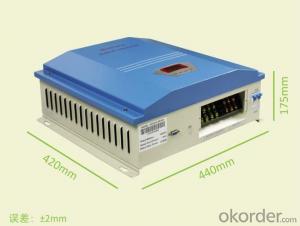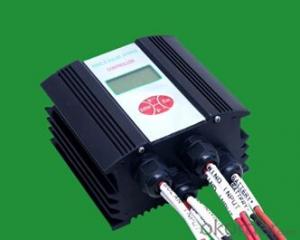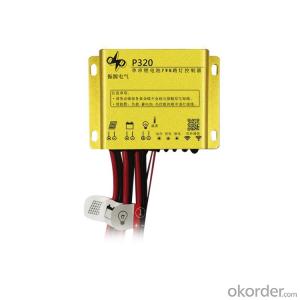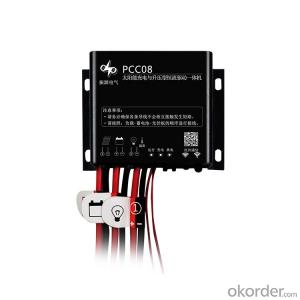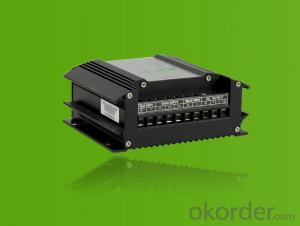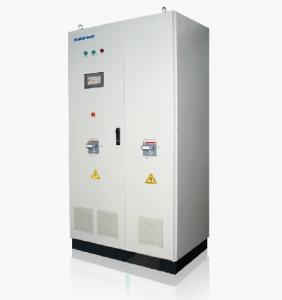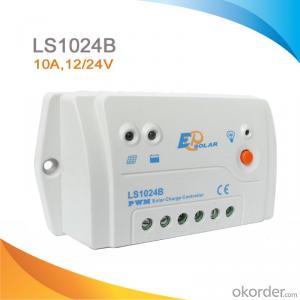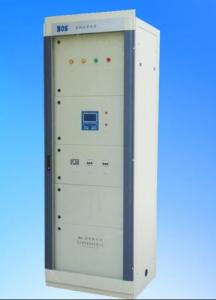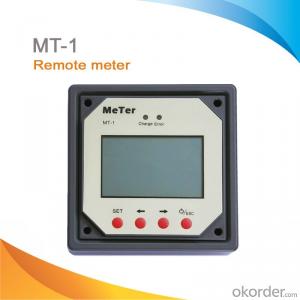Solar Load Controllers - Solar Street Light Controller with Two Time Setting + PWM
- Loading Port:
- Shekou
- Payment Terms:
- TT OR LC
- Min Order Qty:
- 100 unit
- Supply Capability:
- 100000 unit/month
OKorder Service Pledge
OKorder Financial Service
You Might Also Like
(1)adopt advanced MCU design, conforming PWM charging controlling technology, with strong reliability and anti-disturb capability.
(2)Adopt solar energy as power source without waste of regular energy.
(3)Perfect protective and temperature compensate function to prevent the battery from over voltage or shortvoltage.
(4)With perfect capability, to protect acid battery from over discharge
(5)It can restart electrodeless lamp, the controller can restart itself to make sure electrdeless lamp under normal working status when electrodeless lamp is not able to turn on
(6)work under diferent surroundings.
(7)Memory function: startup load mode and main circuit’s working time can be reached by setting with outer keys. After setting, the time will be saved in memorizer. The data will not disappear even battery is disconnected with controller.
Technical parameter
MODEL SKC05 SKC10 SKC15 SKC20
Max.solar panel current 5A 10A 15A 20A
Max.load current 5A 10A 15A 20A
Use voltage 12V/24V,automatic recognition
No-load current ≤6 mA
Overvoltage protection of battery 17V(12V), 34V/24V;
Ambient temperature range: -35℃--+55℃
Boost voltage 14.6V(12V), 29.2V/(24V)
Equalization voltage 14.4V(12V), 28.8/(24V)
Float voltage 13.6V(12V), 27.2V/(24V)
Recharge voltage 13.2V(12V); 26.4/(24V);
Temperature compensation 5mv/℃/2V
Undervoltage of battery 12V(12V); 24V/(24V)
Low voltage disconnect 11V(12V); 22/24V;
Load reconnect voltage 12.6V(12V), 25.2/(24V)
Charge control mode PWM
- Q: How do you protect a solar controller from extreme weather conditions?
- To protect a solar controller from extreme weather conditions, it is important to use a weatherproof enclosure or housing specifically designed for outdoor use. This enclosure should shield the controller from rain, snow, and high winds, while also providing adequate ventilation to prevent overheating. Additionally, it is recommended to install the controller in a location with minimal exposure to direct sunlight and extreme temperature fluctuations. Regular maintenance and inspection are also crucial to ensure the controller's longevity and functionality in harsh weather conditions.
- Q: Can a solar controller be used with solar-powered marine systems?
- Yes, a solar controller can be used with solar-powered marine systems. A solar controller helps regulate and optimize the charging process of batteries connected to solar panels. This is essential in marine systems as it helps protect the batteries from overcharging and provides efficient power management.
- Q: Can a solar controller be used in a solar-powered underwater exploration system?
- Yes, a solar controller can be used in a solar-powered underwater exploration system. The solar controller regulates the flow of electricity from the solar panels to the batteries, ensuring that the batteries are charged properly and efficiently. This is essential in underwater exploration systems where a reliable power source is needed to operate various equipment and instruments. The solar controller helps optimize the charging process, ensuring that the solar panels are effectively capturing and converting sunlight into energy for the system's operation.
- Q: Are solar controllers necessary for small solar panel systems?
- Yes, solar controllers are necessary for small solar panel systems. They regulate the flow of electricity from the solar panels to the battery, preventing overcharging and damage to the battery. Additionally, solar controllers help optimize the efficiency and performance of the solar panel system, ensuring maximum power generation.
- Q: Can a solar controller be used with a solar-powered restaurant or cafe?
- Yes, a solar controller can definitely be used with a solar-powered restaurant or cafe. A solar controller helps regulate and optimize the charging and discharging of batteries in a solar power system. It ensures that the solar panels are efficiently converting sunlight into electricity and that the batteries are properly charged and protected. This is crucial for a solar-powered restaurant or cafe as it allows for a reliable and sustainable energy source to power various electrical appliances and equipment, reducing dependence on the grid and minimizing operating costs.
- Q: Can a solar controller be used with solar panels of different voltages?
- Yes, a solar controller can be used with solar panels of different voltages. The solar controller is designed to regulate the charging and discharging of batteries, ensuring that they receive the correct voltage and current. It can efficiently handle various voltage inputs from different solar panels and adjust the charging process accordingly. However, it is important to ensure that the solar controller is compatible with the highest voltage panel to avoid any potential damage or inefficiency.
- Q: What is the maximum discharge voltage of a solar controller?
- The maximum discharge voltage of a solar controller varies depending on the specific model and manufacturer. However, in general, the maximum discharge voltage of a solar controller is typically around 12 to 24 volts. It is important to note that the discharge voltage should not exceed the maximum voltage rating of the connected battery system, as this can cause damage to the battery and other connected components. It is always recommended to refer to the product specifications and guidelines provided by the manufacturer for accurate information regarding the maximum discharge voltage of a specific solar controller.
- Q: How does a solar controller prevent damage from power fluctuations?
- A solar controller prevents damage from power fluctuations by regulating and stabilizing the flow of electricity from the solar panels to the battery or grid. It monitors the voltage and current levels and adjusts them accordingly, ensuring that the power supplied remains within safe limits. This prevents overcharging, overheating, and other potential damage that could occur due to unpredictable fluctuations in power output.
- Q: How do you connect a solar controller to a solar panel?
- To connect a solar controller to a solar panel, you will need to ensure that the solar panel's positive (+) terminal is connected to the positive (+) terminal of the solar controller and the negative (-) terminal of the solar panel is connected to the negative (-) terminal of the solar controller. This can be achieved by using appropriate connectors or wiring, making sure to follow the manufacturer's instructions and safety guidelines.
- Q: What is the maximum charging current that a solar controller can handle?
- The specific model and specifications of a solar controller determine its maximum charging current capacity. Solar controllers are generally designed to handle various charging currents based on the size and capacity of the solar system. Manufacturers usually mention the maximum charging current in the product specifications or user manual. For smaller controllers used in smaller solar systems, it can range from a few amperes, while larger controllers used in bigger solar installations can handle several hundred amperes. When selecting a solar controller, it is crucial to consider the maximum charging current to ensure that it can manage the current generated by the solar panels and meet the battery system's charging requirements. Going beyond the maximum charging current limit of a solar controller may cause damage to the controller or the connected battery system. Therefore, it is advisable to carefully examine the product specifications and seek guidance from the manufacturer or a solar professional to determine the appropriate solar controller for a specific solar system.
Send your message to us
Solar Load Controllers - Solar Street Light Controller with Two Time Setting + PWM
- Loading Port:
- Shekou
- Payment Terms:
- TT OR LC
- Min Order Qty:
- 100 unit
- Supply Capability:
- 100000 unit/month
OKorder Service Pledge
OKorder Financial Service
Similar products
Hot products
Hot Searches
Related keywords

